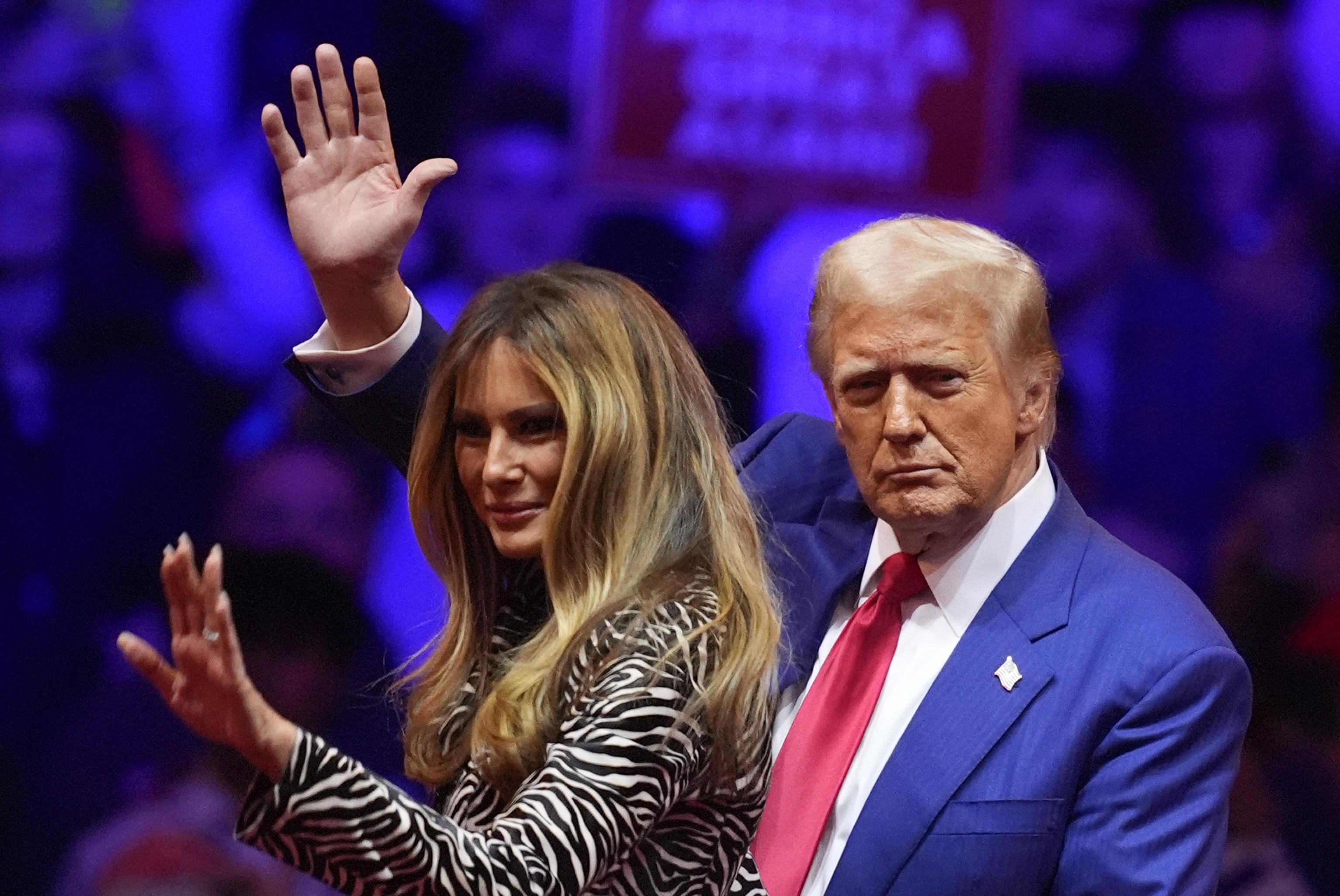What British Keir Starmer, French Emmanuel Macron, or German Friedrich Merz couldn't achieve for months, Melania Trump did this week: getting the US President to understand that Vladimir Putin is pulling his leg in the supposed peace negotiations in Ukraine.
Donald Trump himself revealed a conversation with his wife in which the President assured her that he had just spoken with Putin: "I'm going home. I tell the First Lady, 'You know, today I spoke with Vladimir. We had a wonderful conversation.' She said, 'Wow, that's strange, because they just bombed a nursing home in Ukraine,'" Trump recounted last Tuesday.
After months of games and confusion, it is possible that the White House is beginning to realize that Moscow does not want to negotiate anything other than a victory (not achieved on the battlefield) and intends to continue the invasion that began on February 24, 2022.
To capitalize on this first favorable momentum for Kyiv since last February, and after facing challenges like the confrontation in the White House between Zelensky and Trump and his Vice President JD Vance, the President of Ukraine has made some political moves to try to gain influence in the US Administration. That's why he is sending Rustem Umerov, the current Minister of Defense and a person of utmost trust of the President of Ukraine, as the new ambassador to Washington.
While there is still no end in sight to the war, Zelensky is approaching the United States with individuals who have already negotiated with the White House. That's why he has chosen Yulia Svyrydenko as the new Prime Minister, the person who recently negotiated the agreement on minerals and rare earths with Washington. Svyrydenko will be the first woman in the position since 2010 when Yulia Tymoshenko's second term ended.
On the other hand, former Prime Minister Denys Shmyhal, who has been with Zelensky throughout the conflict, will now take over the Defense portfolio left vacant by Rustem Umerov. "Ukraine needs a more positive dynamic in relations with the United States and, at the same time, new steps in managing our State's defense sector," said Zelensky to explain the change.
However, the Kiev government cannot relax with Trump's attitude. Everything that has happened indicates that he is "furious" with Vladimir Putin for deceiving him, but that does not mean he has changed his stance towards a more pro-Ukrainian view. This week, Trump decided to release the sale of several Patriot air defense systems to European allies of Kyiv, to be delivered directly to Ukraine, and to unblock the delivery of ammunition, already agreed with Joe Biden but halted by his Defense Secretary, Pete Hegseth, without consulting the President. However, he has not ordered any new package paid for by Washington that was not already approved months ago by the US Congress.
The deadlines that Trump has given Putin as an ultimatum, before imposing 100% sanctions on countries trading with Russian gas or oil, are also unsettling for Kyiv. In the latest conversation between the two leaders, Axios revealed, citing White House sources, that Putin stated over the phone that "he wanted it all," referring to his goals in Ukraine, and that he was planning a 60-day summer offensive. Ten days after that call, the US President gave the Russian autocrat a 50-day deadline to accept his demands for an immediate ceasefire.
The timelines offered by Trump coincide with what Putin claimed he needed for his offensive, although it is difficult to determine if this is an agreement between them or a temporal coincidence. What is certain is that Russian Foreign Minister Sergey Lavrov mocked the deadlines offered by Washington: "We have already heard deadlines of 24 hours, two days, 100 days... We want to understand what is behind Trump's statement about the 50 days."
Even in this case, Russian troops are not making significant advances on the frontlines. Several offensives, like the ones in Sumy or Kupiansk in the north, have been stalled for weeks. Now, Russian forces are focusing their resources on the Mirnograd and Konstantinivka areas in Donetsk, the front that currently concerns Ukraine the most.
Regarding the conversation Donald Trump had with Zelensky afterward, where supposedly the US President asked the Ukrainian if he could "attack Moscow or St. Petersburg," Trump later mentioned that "Ukraine should not attack Moscow," without revealing if he used those words with Zelensky or not.
